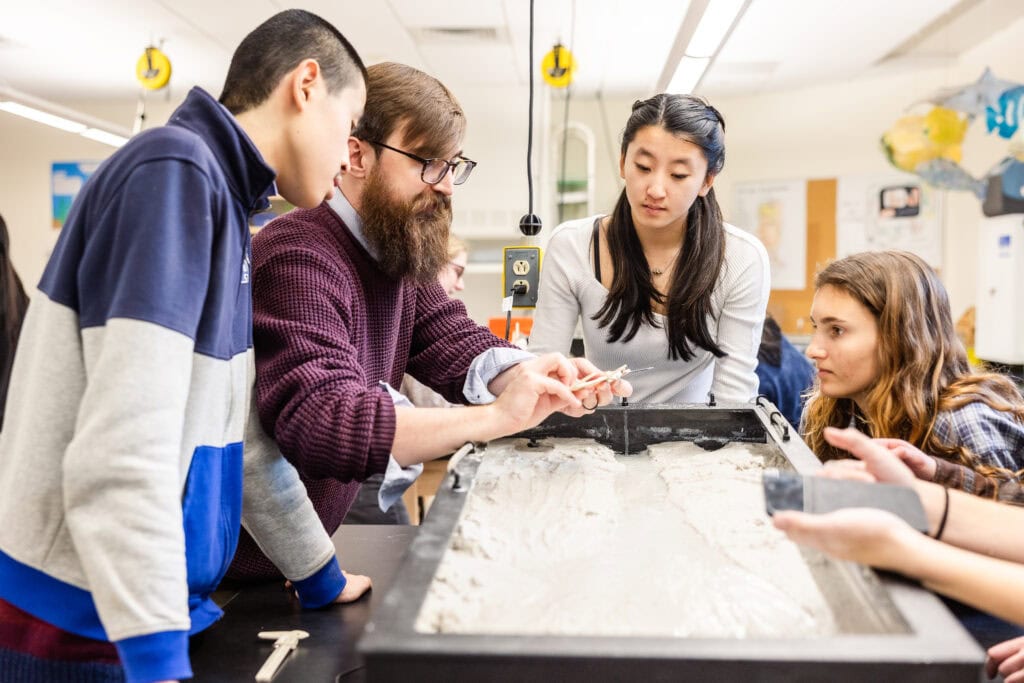Graham Hegeman

Graham Hegeman
Upper School science teacher
Clark University, B.A., M.A.
Upper School environmental science teacher Graham Hegeman could be found outdoors as a youngster, turning over rocks to inspect the insects underneath and collecting leaves to learn about trees. So, it’s unsurprising that Hegeman teaches a very hands-on science class at Kingswood Oxford, challenging his students to roll up their sleeves and get down in the muck of the Farmington River, examining water samples, or aquatic organisms.
“In society, we view ourselves as apart from nature, and I want to show our students that we are inextricably linked with it,” he said. So, showing students how everything in the world affects them, even though they are unaware of it, is magical to me. I eat it up when they make connections.”
Hegeman wants his students to get knee-deep in the scientific process and find solutions to problems he crafts for them. He views their learning as a process of discovery where he stays on the side, guiding, facilitating, and posing questions for them to consider. In one recent class, he asked the students to model processes of erosion or deposition that occur in rivers by using stream tables to apply their knowledge.
“The students are coming up with all sorts of crazy solutions to show stream bed erosion and the water table,” he said. “I like seeing their gears turn as they work towards the solution.”
Hegeman doesn’t believe that students should set limitations on themselves and claim they are not “science” kids. He encourages a growth mindset and wants students to develop an appreciation of the scientific process so they can apply it in their day-to-day lives.
“What I want them to understand is that they can be a science kid if they want to be,” he said. “And, if that’s where their interest lies, I can make that happen.”
He reverse-engineers his classes and approaches his lessons by asking himself what would benefit the students in terms of knowledge and understanding. Then, he presents the material in a way that will make them want more.
One of the most satisfying aspects of teaching for Hegeman is when a student progresses from not understanding the material to suddenly comprehending it and never forgetting it. Hegeman cares most about a student’s understanding of the concepts and the underpinnings of things rather than memorizing terms.
When not on campus, you may find Hegeman standing in almost frigid waters, catching a three-inch stickleback fish for scientific research. This particular fish, Hegeman said, is known as a supermodel organism because of its use in understanding several questions in biology, including evolution health/parasitology, genetics, and ecology. “The stickleback is a fascinating species because we have a great understanding of how they evolved, and we also have their gene sequence,” Hegeman said. “We know much about how their genes are related to human genes, and they are really easy to keep in the laboratory.”
Favorite hobbies: board games, Dungeons and Dragons
Favorite band: alt-rock, The Decemberists
Favorite food: sushi, ramen, Ethiopian

"I eat it up when students make connections.”

